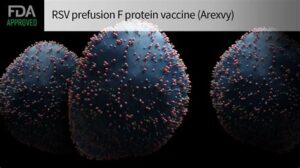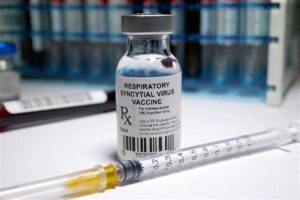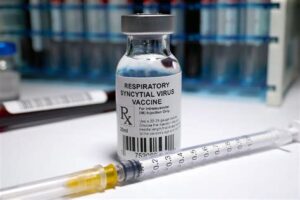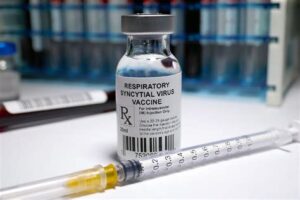Learn about RSV, vaccination frequency and recommendations, effectiveness, and the importance of consulting a healthcare professional for optimal protection.As respiratory syncytial virus (RSV) continues to pose a serious health risk, particularly for young children and the elderly, understanding the importance of vaccination becomes crucial. With the rise of RSV cases, many individuals and caregivers ponder the question: how often should one receive the RSV vaccine? In this blog post, we will delve into the intricacies of RSV, explore how frequently vaccinations are recommended, and outline the appropriate age groups for receiving these shots. Additionally, we will examine the vaccine’s effectiveness and emphasize the importance of consulting with healthcare professionals regarding RSV vaccination. Whether you’re a parent, caregiver, or simply looking to stay informed about preventive measures, this comprehensive guide will help you navigate the complexities of RSV vaccination.
Understanding Respiratory Syncytial Virus (RSV)
Respiratory Syncytial Virus (RSV) is a common virus that primarily affects the respiratory tract. It is particularly known for causing infections in infants and young children, leading to conditions such as bronchiolitis and pneumonia. RSV is highly contagious and can be transmitted through respiratory droplets from coughing or sneezing, as well as through surfaces contaminated with the virus.
While most healthy children and adults will experience only mild symptoms, RSV can pose serious risks for premature infants, the elderly, and those with pre-existing health conditions. Early recognition of RSV symptoms, which can resemble those of a common cold, is essential for timely intervention and care.
Vaccination plays a crucial role in the prevention of severe RSV infections. The introduction of RSV vaccines is aimed at reducing hospitalizations and improving overall health outcomes for those at high risk.
Frequency of RSV Vaccination
The Respiratory Syncytial Virus (RSV) is a common viral infection that can lead to serious respiratory issues, especially in infants and young children. Vaccination against this virus is crucial for high-risk populations, which include premature infants and those with certain medical conditions. However, a common question among parents and caregivers is: how often should they get the RSV vaccine?
Currently, the frequency of RSV vaccination largely depends on the individual’s risk factors and medical history. For high-risk infants, a monoclonal antibody treatment known as palivizumab may be administered. The recommended schedule typically involves monthly injections during peak RSV season, which usually spans from late fall to early spring. This ensures that the baby receives adequate protection throughout the most vulnerable months.
For healthy infants and children, there is generally no routine vaccination against RSV as the immune system often combats the virus effectively. However, research is actively ongoing, and it’s worth noting that new vaccines could change the current vaccination frequency recommendations. For personalized advice, it’s best to consult your healthcare professional regarding the most suitable vaccination plan for your child.
Recommended Age for RSV Vaccination
Respiratory Syncytial Virus (RSV) is a common virus that can lead to serious respiratory issues, particularly in young children and infants. Due to its potential severity, determining the recommended age for RSV vaccination is crucial for caregivers and healthcare providers.
The American Academy of Pediatrics and the Centers for Disease Control and Prevention (CDC) recommend that infants, especially those at higher risk (such as premature babies or those with underlying health conditions), should receive the RSV vaccination as early as 6 months of age. This timing is essential to provide immunity during peak RSV seasons, which typically run from fall to spring.
For those who are at high risk, the vaccination schedule may vary, and it is important to discuss individualized needs with a healthcare professional. They can provide tailored advice on the best timing to ensure optimal protection against RSV. As always, staying informed on vaccination schedules plays a vital role in safeguarding children’s health.
Effectiveness of RSV Vaccination
The effectiveness of the RSV vaccine is a critical factor in the fight against respiratory syncytial virus (RSV), particularly for vulnerable populations such as infants, the elderly, and those with underlying health conditions. Recent studies have shown that the vaccine can significantly reduce the incidence of severe RSV infections, leading to fewer hospitalizations and a decrease in mortality rates associated with this virus.
The vaccine works by stimulating the immune system to produce antibodies against RSV. These antibodies help the body to recognize and fight the virus if exposed. Effectiveness can vary based on several factors, including age, overall health, and the timing of vaccination. Research indicates that the protective effects of the vaccine are most pronounced in young infants, who are at the highest risk for severe infections.
Moreover, the efficacy of RSV vaccination can differ between various formulations of the vaccine. Some newer options are proving to offer enhanced protection compared to earlier versions. Health organizations recommend monitoring ongoing studies to stay updated on the latest findings regarding the effectiveness of RSV vaccinations in different age groups and populations.
Consulting with a Healthcare Professional
When considering the RSV vaccine, it is essential to consult with a healthcare professional. These experts can provide tailored advice based on individual health histories, risk factors, and current medical guidelines.
A healthcare professional can discuss the benefits and potential side effects of the RSV vaccine, helping individuals to make informed decisions. They can also guide patients about the recommended age for vaccination and whether it’s appropriate to receive the vaccine annually or on a different schedule.
Moreover, discussing your specific circumstances, such as underlying health conditions or interactions with other vaccines, is vital. This dialogue ensures you understand the importance of protecting yourself and your loved ones against RSV, especially during the peak season of infections.
Frequently Asked Questions
What is the RSV vaccine?
The RSV vaccine is designed to help protect against respiratory syncytial virus (RSV), a common respiratory virus that can cause severe illness in infants and older adults.
How often should adults receive the RSV vaccine?
Currently, it is recommended that older adults and individuals at high risk receive the RSV vaccine annually.
Are there specific guidelines for infants regarding the RSV vaccine?
Yes, infants, particularly those at high risk, may receive a preventive treatment called palivizumab, typically administered during RSV season, rather than a traditional vaccine.
What are the symptoms of RSV that the vaccine helps prevent?
The vaccine helps prevent symptoms of RSV infection, which can include mild cold-like symptoms, wheezing, and in more severe cases, pneumonia or bronchiolitis.
Is the RSV vaccine safe for everyone?
While the RSV vaccine is safe for most people, individuals with certain health conditions should consult their healthcare provider for personalized advice.
When is the best time to get vaccinated for RSV?
Vaccination is typically recommended in the fall, before the peak RSV season, which varies by region but often starts in winter.
Can the RSV vaccine prevent COVID-19 or the flu?
No, the RSV vaccine specifically targets the respiratory syncytial virus and does not provide protection against COVID-19 or influenza.





